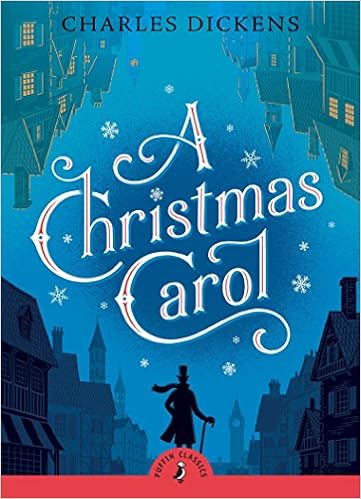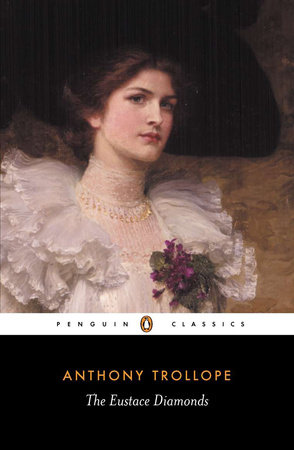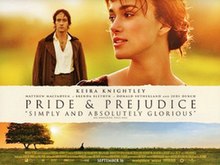I have a confession to make, one that will amaze anyone who knows me in real life: I've never read any of Agatha Christie's books. Someone is probably thinking, "How can you be a bookworm and not read her books?" Good question. I want to read some of her books, but I've never got around to it yet. So I was one of the few people to watch this series with only a vague idea of the plot.
And Then There Were None is a 2015 miniseries adapted from the book of the same name by Agatha Christie. It's the first miniseries adaptation, but there have been at least four different film versions. I wrote this review while watching the series, so it's basically a list of my thoughts as I watched it.
There are several recognisable actors.
Anna Maxwell Martin (Esther in Bleak House 2005) as Mrs. Rogers
Charles Dance (Mr. Tulkinghorn in Bleak House 2005) as Wargrave
Burn Gorman (Mr. Guppy in Bleak House 2005) as Blore
Douglas Booth (Pip in Great Expectations 2011) as Marston
Sam Neill (Dr. Grant in Jurassic Park) as MacArthur
Miranda Richardson (Lady Van Tassel in Sleepy Hollow 1999) as Miss Brent
Aidan Turner (Kíli in The Hobbit) as Lombard
The opening credits are, not to put too fine a point on it, ugly. I hardly noticed any of the names at first. I was too busy trying to figure out what on earth those hideous green
things were supposed to be. The first scenes aren't an improvement. The constant cuts between apparently-unrelated events left me wondering what the heck I was watching.
The series finds a creative way to introduce all the characters. We start with a woman being offered a job she didn't apply for -- something that would have warned most people there was something suspicious going on. Then we abruptly jump to letters being sent to other people, interspersed with those people going about their days. Creative, but confusing.
I like the music; it's suitably ominous. So is the incredibly bleak island the characters go to. What sort of island has massive cliffs in the middle of it?!
Is this an island or the Loch Ness Monster?
Imagine trying to write a tourist brochure for this island! An idyllic destination for anyone who likes to spend their holidays terrified of falling. If you don't have a fear of heights already, this place will give you one.
Ugh, the hideous green things reappear. Now I'm fairly sure they're supposed to be statues. Statues that look like the first attempts of a clumsy amateur statue-maker who made them while blindfolded 😒
What are those servants up to? At first I thought they were Mr. and Mrs. Owen in disguise. I'm trying
very hard not to look up the book's plot, but the series takes ages to explain anything. At this rate I'll have to consult Wikipedia just to understand what's happening.
None of the characters are admirable, but Lombard stands out as a disgusting creep 😠
Love the scene where darkness literally covers the island! It's incredibly eerie, and the symbolism is obvious without being obnoxious.
The flashbacks to the murders are chilling 😨 I was wrong when I said Lombard's a disgusting creep. He's a complete monster 😱 I know enough of the plot to know most of the people on the island die. But I didn't expect the first death would happen so suddenly 😨
Episode two begins with two dead guests and two missing statues. (Thank goodness there are two less of those eyesores!) Sometimes this series feels more like horror than mystery. The way the camera lingers on the axe is honestly terrifying.
Some parts of the plot remind me a lot of
Murder on the Orient Express. Most notably when everyone realises the killer is one of the guests.
As if the whole thing isn't creepy enough, the series just has to go the "dark and stormy night" route. Complete with lights going out, windows blowing open, and the moon going behind a cloud. And another murder, of course. Possibly the goriest yet 😱
Hiding a key and a gun in a bearskin rug? What a weird place to hide anything. Though I guess it worked; no one found the key. Yet.
It took me until the opening credits of episode three to realise that title card isn't just a mass of cracked statues; it's in the shape of the island and the house. Now I feel stupid for not noticing it earlier.
Someone clearly thought there wasn't enough horror in the series, so they showed some of the guests imagining their victims are in their rooms. I'm not sure if those are supposed to be hallucinations or if we're meant to believe they're actual ghosts. Either way, they're terrifying. Especially the hand in the sink 😨
Oh, for goodness' sake. A horror/mystery series is much better off without a romance subplot, but they just had to shoehorn one in here anyway. Not only does it interrupt the suspense, it's utterly out of place. And between the most despicable guest and the closest the series has to a main character, too. I don't know if it was in the book. Even if so, it should have been left out of the series.
What on earth? The bearskin rug came to life?! That had better be another hallucination 😒
I suspect the director wanted Lombard's death to be sad. The "romance" earlier only makes sense if you think it's meant to turn later events into a tear jerker. Unfortunately, Lombard was such a vile character that I didn't feel sorry for him at all. And the way Vera shrieked and hopped around just looked silly.
THE JUDGE WASN'T DEAD?????? And he was behind the whole thing? ...I should probably have guessed. Any character played by Charles Dance is practically guaranteed to be a villain.
The final scene is possibly the most disturbing in the whole series. Even if anyone finds all the bodies, they'll have no idea what really happened or who the killer was.
Creepy.
Overall I quite enjoyed this series. I don't know how faithful it is to the book, but as a story in its own right it's fairly good. My main problem with it is how utterly despicable all the characters are. I know that's the point of the series, but I prefer stories with at least one relatively decent character.
Is it available online?: I doubt it.
Rating: 6/10.







































